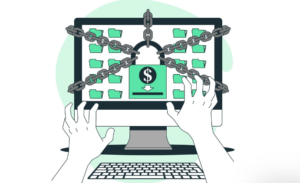Bitcoin was first introduced in 2008 on whitepaper as a potential currency for transactions. However, after several years of its introduction, governments are still skeptical about using digital currency for official transactions.
Although several countries have legalized bitcoin, several others have out absolute ban on its usage. But why are governments so cautious when it comes to using bitcoin as an official currency? Let’s find out.
How Does Fiat Currency Differ From Bitcoin?
Fiat currency is the conventional currency of any country. All the fiat currencies are backed by the government. This means in case of any default; the government will compensate the individual. Governments have complete trust in fiat currency.

For example, in the US, fiat currency is backed by the Federal Reserve. The reserve prints and circulates the money in the US economy.
However, with bitcoin, such is not the case! The cryptocurrency is not backed by governments or any other regulatory authority. Moreover, this decentralized currency can be produced by anybody removing the need for intermediaries. This freedom of using the currency threatens the traditional financial structure of the world.
Therefore, countries are not so inclined at using cryptocurrency as a legal tender anytime soon.
Why Governments are Cautious about using Bitcoin?
• Bypass Governmental Control
Since bitcoin doesn’t need any intermediaries, it is capable of bypassing governmental controls very easily.
Most governmental control is meant to prevent the outflow of the currency outside the country. This can come as a major imposition on fiscal and economic policy. However, with bitcoin, the assets can be moved easily bypassing the controls and exporting wealth.
• Bitcoin May Support Illegal Activities
Bypassing governmental controls on bitcoin is a boon for criminals or organizations involved in illegal activities.

The pseudonymous network of Bitcoin makes it easier for people to use it for illicit activities. Since the users are identified using their network addresses, it becomes extremely difficult to trace the transactions.
For example, a few years back Silk Road was used as the hub for illegal drugs and guns. However, the transactions to procure these illegal items were done using bitcoin making it difficult to trace the parties. Although the FBI was eventually able to crack down on the case, the initial damage to the world was already done.
• Bitcoin is unregulated
Even after a decade of its introduction, bitcoin is still unregulated in the world. Governments are still figuring out the best way to regulate cryptocurrency and make it a safer way to transact. Several crucial aspects of bitcoin create hurdles to make regulatory policies.
For example, whether bitcoin must be used for daily transactions or only for buying valuable assets? During economic difficulties worldwide, is bitcoin a good currency to rely on for major transactions? Nobody really has answers for these concerns.
Final Takeaway
It’s a long road for cryptocurrencies such as Bitcoin to get worldwide acceptance due to several reasons. Although governments are taking steps to understand cryptocurrency, they are still cautious with its frequent use. What is the future of cryptocurrency, that remains to be seen!











